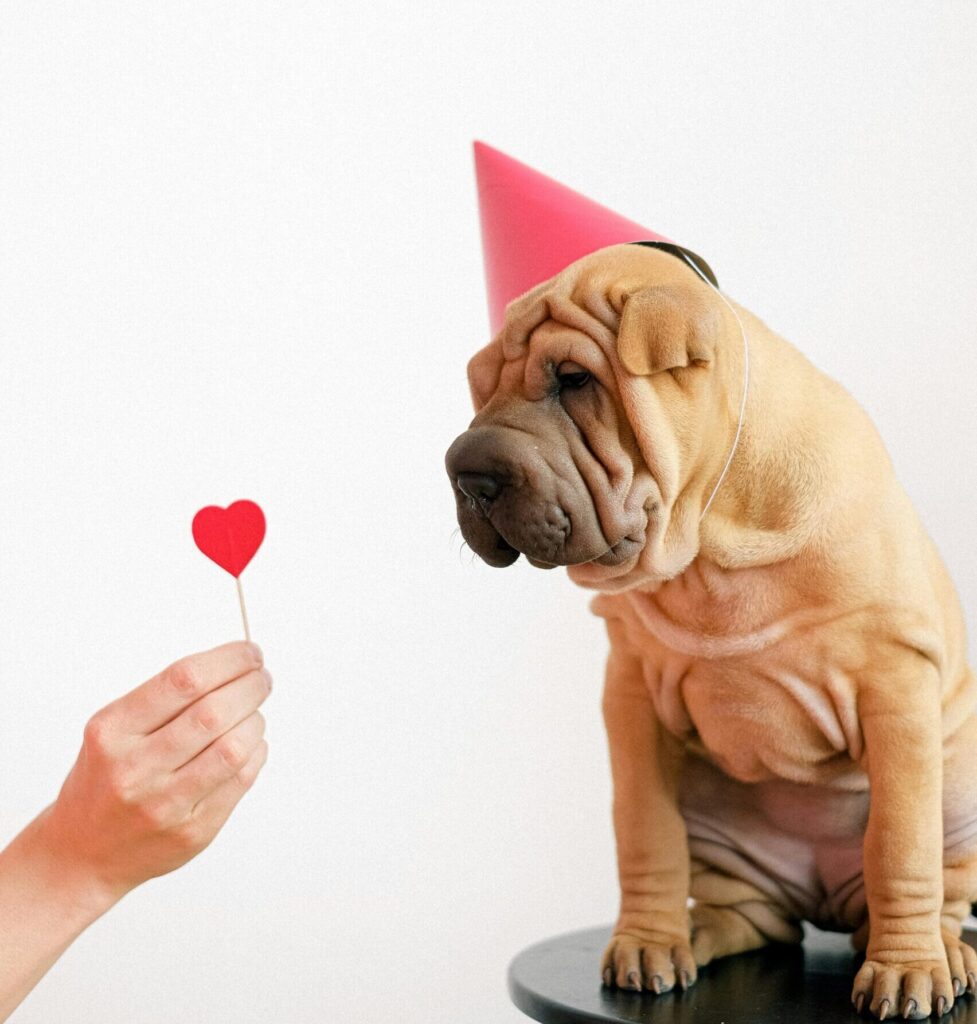probably looking forward to bringing home a gorgeouspuppy . To avoid unpleasant surprises, however, we recommend that you purchase a dog belonging to a selected breed, turning exclusively to a puppy breeder. With this article we want to help you understand if you can really trust the seriousness of a particular breeder.
Summary
- Brief introduction
- Why it is important to turn to a serious breeder
- Breeder search and first personal contact
- 12 Questions to Ask a Breeder When Buying a Puppy
Brief introduction
If you have already spotted a puppy all disheveled, wagging his little tail happily and looking at you curiously with those big eyes full of trust… it is usually too late to make a rational decision. Unfortunately, even unscrupulous breeders know this, hoping to make easy money by selling sick puppies,scared and without the necessary socialization behind them.
At that point, even if you have sensed that the breeder in question is not trustworthy, you will probably feel obliged to offer the possibility of a happy life to an innocent dog. Our advice, however, is to think carefully: in fact, you risk not doing a favor to yourself or to the animal you are about to adopt.
Why it is important to turn to a serious breeder
We are sure that you want to buy a healthy and good-natured animal, with which you can spend many happy years. And we imagine that you certainly do not want to deal with behavioral problems, illnesses and consequent frequent visits to the vet. Those who buy a puppy from any unscrupulous breeder often find themselves having to deal with all of this.
What seemed like a bargain soon turns out to be a nightmare, in terms of economic investment, because often the veterinary expenses that are necessary are far greater than the price paid for the purchase of the puppy. Furthermore, in this way you will have contributed directly to financing the criminal trade of that irresponsible breeder, and indirectly to perpetuating the suffering of other animals.
This is why it is essential to try to carefully select the breeder from whom you will buy your future puppy. A serious professional carefully and wisely selects the specimens to breed: for this reason, for a reliable breeder, the health and good temperament of the breed will always have priority.
By excluding sick specimens and those with undesirable behaviors, the breeder allows a certain breed to maintain its characteristics intact over time and ensures that you can receive a puppy that will not reserve unpleasant surprises for you in the future.
Breeder search and first personal contact
First of all, we recommend that you contact other dog owners and recognized associations of the dog breed you are interested in to ask for the contact details of serious breeders. If you opt for an online search, keep in mind that a serious breeder is registered with a federation or at least with an association officially registered for the breed you are looking for.
At this point, call the breeder and ask to make an appointment to go there in person. You can also ask them the first essential questions over the phone to understand if it is worth traveling to visit the breeder: in any case, the face-to-face meeting with the breeder and the direct observation of the puppies in situation will always be more significant and effective than any phone call.
Our advice is to ask him these 12 questions anyway, when you meet him: a serious breeder will appreciate your interest and will gladly and exhaustively answer these important questions.
12 Questions to Ask a Breeder When Buying a Puppy
Can you show me the farm?
A reliable breeder will be happy to show you the premises and the appurtenances where his dogs are housed. During the visit, it is important that you make sure that the kennel is clean and that the puppies grow up in a sufficiently large, bright, heated and pleasant environment. Young dogs should always have access to fresh water andgames , and should have the opportunity to live in contact with members of the breeder’s family, so that their development can start earlysocialization .
Serious breeders also make sure to have one litter at a time, not several at the same time, to be sure they can adequately care for both the mother and each of her puppies.
Can I observe the puppies calmly?
If the breeder keeps the puppies at home, he or she will surely be proud to show you their cuteness. And even if these clumsy, sweet four-legged friends will make you fall in love at first sight and want to take them all home right away, we recommend that you examine the litter as carefully as possible. Do the puppies all look healthy and does the room where they are kept seem clean and well-kept?
What does their fur look like and how do they behave? Keep in mind that puppies are naturally open to the world, curious and lively. If they seem uninterested in your visit and tend to sit listlessly in a corner, or worse, if they look scared and maybe have a swollen belly, you should immediately desist from buying one of those puppies.
Can I see the mother of the puppies?
In order to get the best possible start to their lives, puppies must stay with their mother for at least 8 weeks. In many countries, this is a legal requirement. In Italy, the three-month period is recommended by most veterinarians. The fact that puppies live with the breeder without their mother is already an indicator of poor reliability.
Of course, some unscrupulous dealers know this well, and when asked about the mother of the puppies, they show their potential customers any adult female. That’s why we advise you to take a look around you and carefully observe the behavior of the adult female towards the puppies. If she shows no interest in them and even pushes them away from her, she is probably not their mother.
Likewise, it is also useful to pay attention to the relationship between the mother and the breeder. Do you feel like you see a close, affectionate and friendly bond between them or does the relationship between them seem hasty and marked by distrust? In the latter case, you should look for another breeder.
What information does a breeder want from me?
Breeding purebred dogs to resell them requires a lot of commitment. Without a great passion, the breeder probably would not tolerate the strict constraints of the ENCI, those required by the Breeders’ Register, the checks by various control bodies including health, the exhausting dog shows, not to mention the sleepless nights next to pregnant females about to give birth to their puppies. It is clear that the breeder makes a good profit from selling his puppies.
However, if you measure it against the effort put in, it is clear that breeding dogs is mainly about love and the desire to preserve that particular breed. This is why those who invest so much, in terms of energy and money, want to be sure that “their” puppies will be well received in their new home. It is not surprising, therefore, if the breeder asks you many questions about your lifestyle, your work and your plans for the future: indeed, he interprets this interest as a positive sign that you are in good hands.
The better the breeder gets to know you, the better they will be able to understand if that breed and that particular puppy are actually a good fit for you and your lifestyle.
Are the puppies vaccinated, dewormed and chipped?
Breeders are required to vaccinate “their” puppies within the terms established by law: at the age of eight weeks, puppies must already have been vaccinated against hepatitis, leptospirosis, parvovirus and distemper. The advice is to have them show you the vaccination certificate of the puppy you intend to buy, verify its authenticity and check that all mandatory vaccinations have been recorded. If you come into contact with the breeder in the period preceding the firstvaccination , you can suggest that you accompany him to the doctor.
Also ask for the name and address of the vet in charge of the breeding: finally, it is important to check that the puppy is microchipped and has been regularly checked.dewormed .
Breeding apart from a breed association or federation?
As a rule, serious breeders specializing in a breed are members of an official Association. If it is a recognized dog breed, the Association is affiliated with a hierarchically superior Federation. This is why it is important to ask the breeder to document his membership in the Federation as a member. When looking for a breeder, ideally you should only contact professionals whose contact details appear on the website of the relevant breed Association.
Are all the documents in order?
Dogs from an officially recognized kennel are all registered and have a document that lists their genealogy, which the breeder will be happy to show you. Linked to this document are the various suitability tests and health tests that dogs admitted to the kennel must undergo. If you have a breeder worthy of your trust, he will present you with the complete documentation. However, you should carefully check both the certificates and the genealogical table of the animal, and ask any questions you may have. A breeder selects the males to mate very carefully and, upon your request, will certainly be happy to explain his choice to you.
Why choose this specific breed?
We have seen how, without passion, it is not possible to breed purebred dogs: it is in fact a very demanding but not particularly profitable activity, practicing which certainly does not make you rich. A breeder will therefore have his good reasons for choosing to breed dogs belonging to this specific breed. What makes it so special in his eyes? What aspects of his work do he appreciate most? Through a personal interview with an expert breeder you will be able to discover many things about the breed that interests you and verify whether the reasons that led you to that same choice have some correspondence with the experiences of the breeder. Chatting with him, a professional who has gained years of experience in contact with this breed, could prove extremely enlightening and not even remotely comparable to the descriptions you find in books and on the internet.
What does the puppy eat?
For the health of a puppy, proper nutrition is essential. If in the first 6–10 weeks he still receives allessential nutrients through breast milk, then it is necessary to gradually accustom the puppy to feed independently. Young dogs have an energy and nutritional requirement that is at least double and can be up to four times that of an adult dog.
Here’s why a puppy of a few months needsspecial foods for puppies that respond appropriately to their nutritional needs. By offering the puppy a specific high-quality food, the serious breeder ensures that it receives all the necessary nutrients in the right quantity, so that it can grow healthy, preventing the risk of any future problems.
A puppy breeder worthy of your trust will certainly be happy to answer your questions in detail regarding thefoods chosen by him to feed his litter, while advising you on an appropriate nutritional program to follow in the first weeks of life at home with your puppy.
How did the process of socializing the puppies begin?
As is well known, the first weeks of life are fundamental for the future of the dog. The close contact with the mother, the constant relationship with the siblings and the attentive care of the breeder and his family have a great impact on the personality of the puppy: if well conducted, these key steps allow him to face his future life feeling safe and without fears.
Already in the first weeks of life, the puppy should begin to get to know the different things that he will encounter in his daily life: other dogs, new people, children, noises from household appliances, cars or motorbikes. ASuccessful socialization is essential for the dog to have a balanced character, to be sufficiently open and with a good temperament. At the same time, the path of accompanying the puppy to the discovery of the outside world must take place gradually, without making him feel overwhelmed.
Usually the puppy breeder refers to a well-defined program, according to which the puppy has socialization experiences already during the first weeks in which it still lives with him. He makes sure to introduce him to as many things as possible even before his transfer to what will be his new home, but at the same time he is careful not to overdo it with too many visits from unknown people, meetings with other pets, noises from the vacuum cleaner, with the volume of the television and with the rustling of bags.
The breeder himself will explain to you in full transparency at what point the puppy is, with respect to familiarity with this type of situation, and how you will have to continue socializing him in the daily life that awaits him at home with you.
How much does a puppy cost and is there a purchase contract?
Of course, you will also have to talk to the breeder about the financial aspects and you will certainly be interested in knowing the price that the breeder has set for his puppies. Normally, purebred dogs cost between 800 and 1,200 euros, a price that can vary depending on the breed and the breeder. If the price is significantly lower than the average, it is time to be suspicious.
Puppy breeders invest a lot of time and money in their dogs, they take them to the vet, do check-ups, have them vaccinated and dewormed, follow the females from conception to birth, feed their dogs with specific foods, offer them care and games to entertain them, being an active part also in their educational path. This is why a price that is around 1,000 euros is completely justified: as proof of this, if you ask him, the breeder will certainly be able to explain to you how he arrived at that price.
Furthermore, the serious puppy breeder will sell his dogs only with a regular purchase contract which, in addition to the agreed price and his and the buyer’s data, will also report important information regarding the breeder’s responsibility, as well as the dog’s identifying features, such as breed, sex, registration number in the Genealogical Book Registers and microchip number.
Breeding apart from a breed association or federation?
As a rule, serious breeders specializing in a breed are members of an official Association. If it is a recognized dog breed, the Association is affiliated with a hierarchically superior Federation. This is why it is important to ask the breeder to document his membership in the Federation as a member. When looking for a breeder, ideally you should only contact professionals whose contact details appear on the website of the relevant breed Association.
Can I come back?
Keep in mind that a dog completely changes the life of its owner: this is why the purchase of a pet must always be carefully considered. The puppy breeder, if a true professional, will assist you in this important decision with words and deeds but for no reason will he try to convince you, much less force you to buy. Instead, he will explain to you in an exhaustive manner what dogs of that breed need, how much exercise they need, if they get along with small children and what needs they have in terms ofcare , ofpower supply and ofeducation .
Not only is it normal, but it is even desirable that you do not decide to buy a puppy after your first visit to the breeder. Instead, ask the breeder if you can return to visit the puppies to familiarize yourself with them. Every puppy is different: the better the breeder knows you, the more easily he will be able to indicate the most suitable puppy for you, with whom you can spend a long and happy life.




